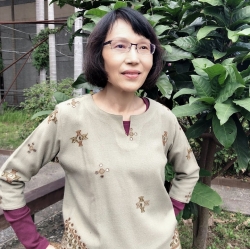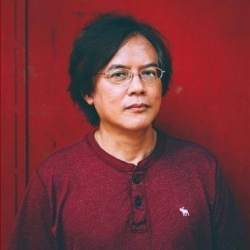An international jury has selected Taiwanese poet Ling Yü 零⾬ (Wang Meiqin 王美琴) as the winner of the 2025 Newman Prize for Chinese Literature. Sponsored by the University of Oklahoma Institute for US-China Issues in the David L. Boren College of International Studies, the Newman Prize is awarded biennially to recognize outstanding achievement in prose or poetry that best captures the human condition, based solely on literary merit. Any living author writing in Chinese is eligible.
Ling Yü will receive $10,000 and an engraved bronze medallion. She will be celebrated at an award symposium and banquet to be held on the OU Norman campus during the last week of March 2025 along with the winners of the International Newman Prizes for English Jueju.
Ling Yü was nominated for the prize by Professor Cosima Bruno (SOAS London), who praised her poetry for its “untrammeled, ingenious lyricism” and its ability to weave contemporary themes and personal experiences with the controlled elegance of classical Chinese poetry.












